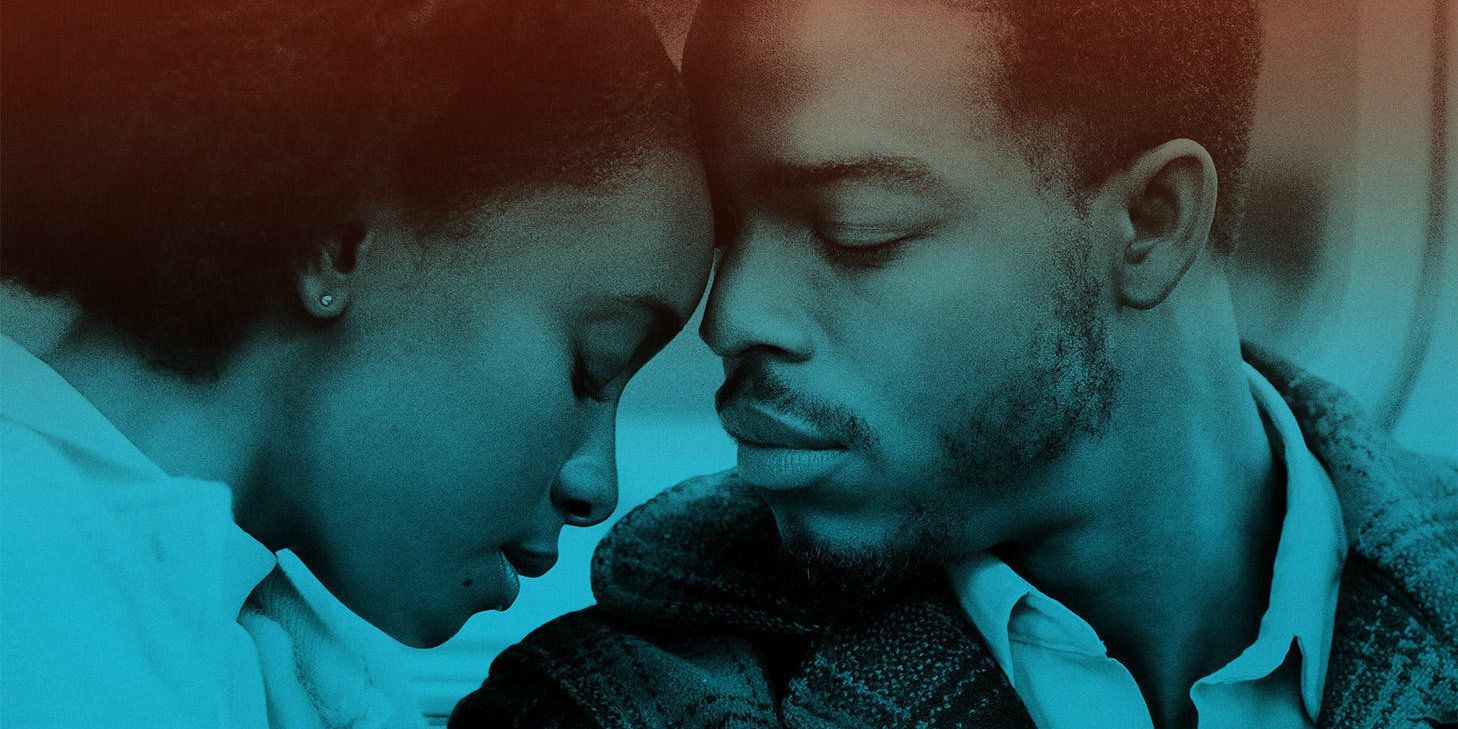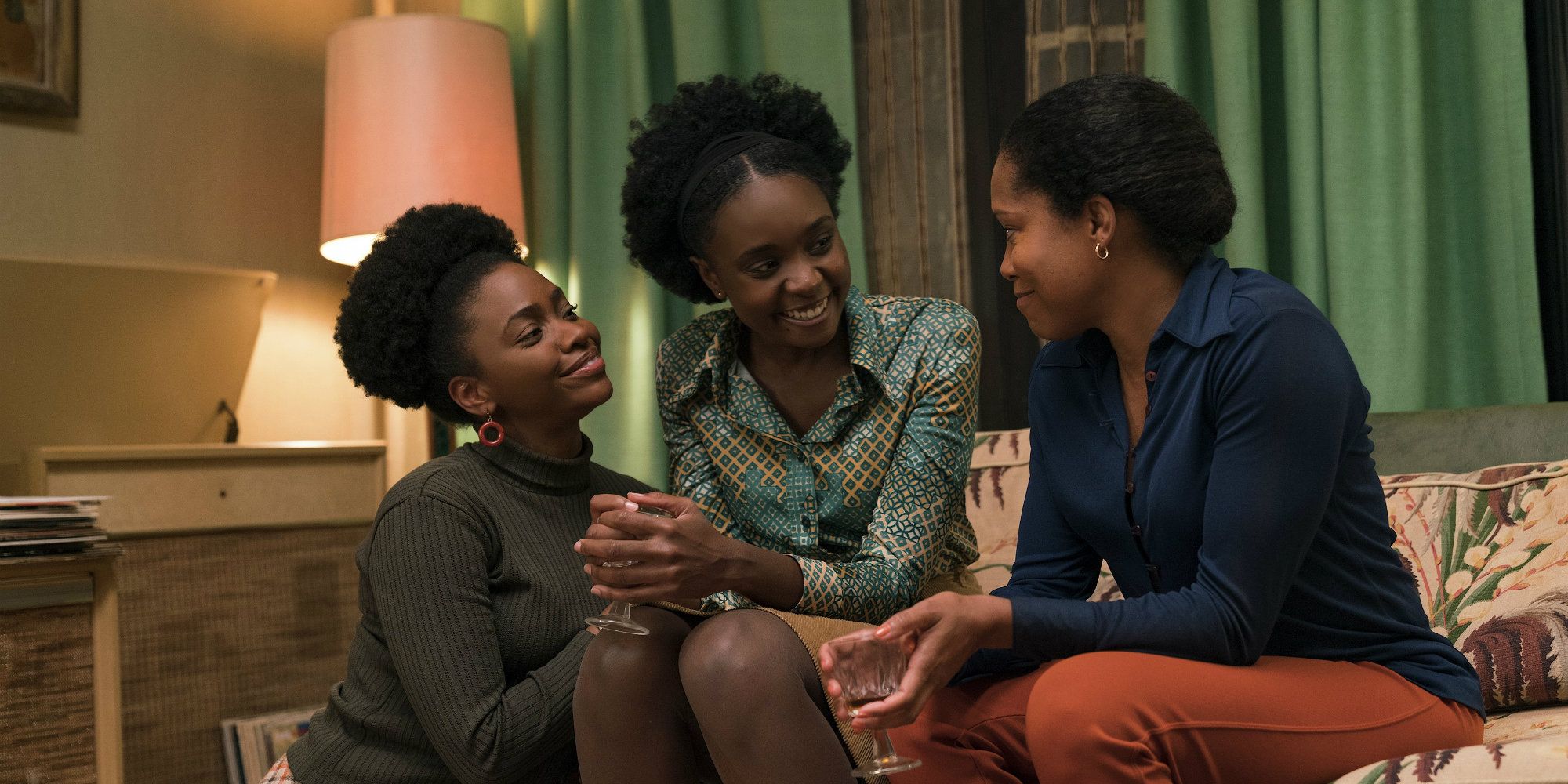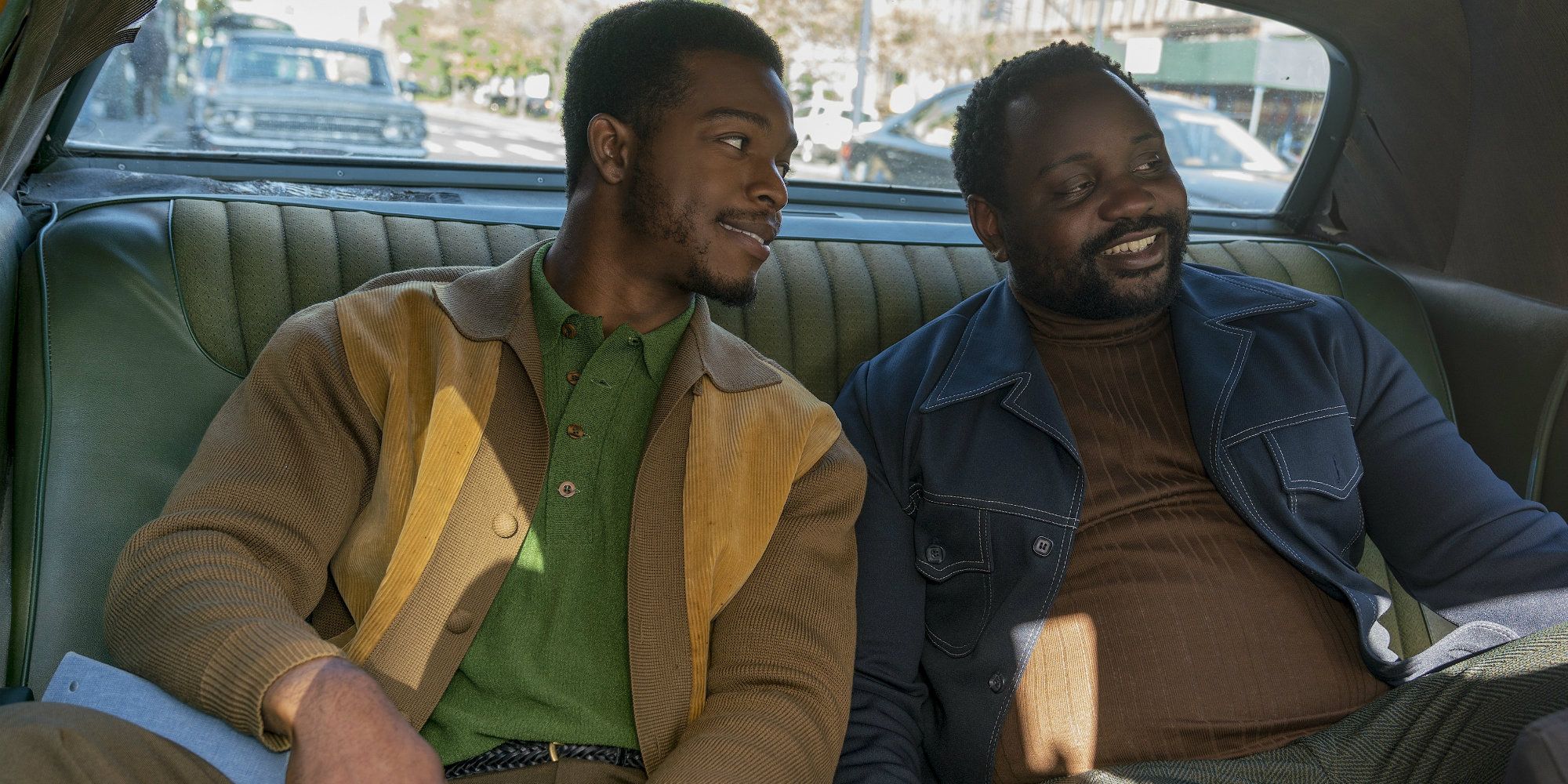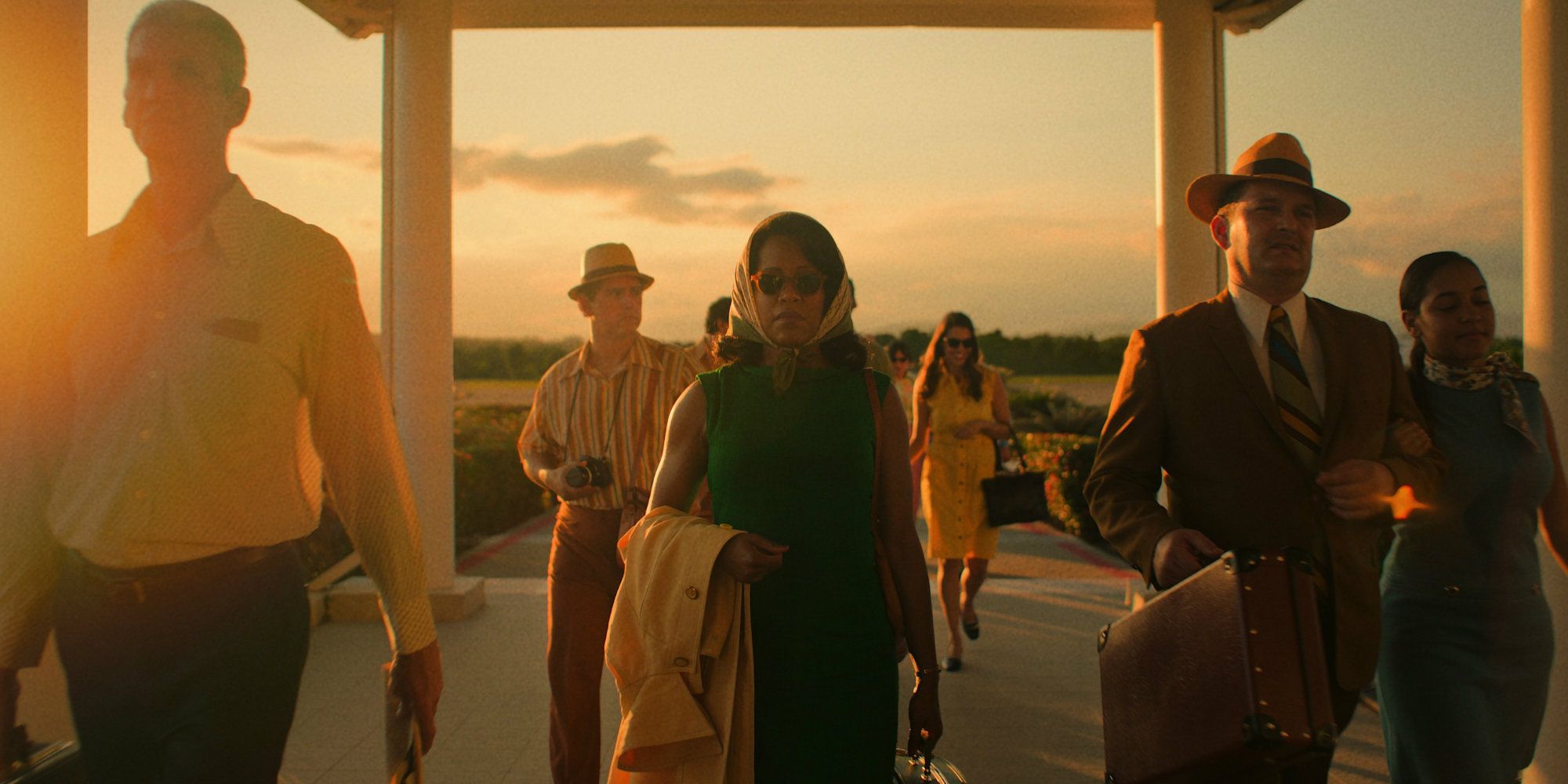
Much like his previous films as a director, Jenkins' Beale Street adaptation is a richly layered and beautifully atmospheric work of cinematic poetry.
Two years after the release of his sophomore directorial effort Moonlight (a film that was crowned Best Picture by the Academy in 2017 and landed him as Oscar for his writing), filmmaker Barry Jenkins returns with another ambitious venture in the form of If Beale Street Could Talk. An adaptation of James Baldwin's 1974 novel, Beale Street has been in development since 2013 and was actually written at the same time that Jenkins worked on the Moonlight screenplay with Tarell Alvin McCraney. The film has been widely celebrated throughout its festival run and (justly) continues to gain momentum in the current awards season race, ahead of its theatrical release. Much like his previous films as a director, Jenkins' Beale Street adaptation is a richly layered and beautifully atmospheric work of cinematic poetry.
Set primarily in 1970s-era Harlem, If Beale Street Could Talk revolves around Clementine "Tish" Rivers (KiKi Layne) and Alonzo "Fonny" Hunt (Stephan James). While Tish and Fonny grew up together as children, it's not until they reach young adulthood that the pair come to realize how deeply connected - and romantically attracted - they are to one another. Upon recognizing their feelings, the two begin dating and, before long, are a proper couple sharing their own apartment, all while Fonny settles into his career as a self-made artist and Tish works a steady job at a department store.

However, their lives are forever changed when Fonny is charged with raping a woman named Victoria Rogers (Emily Rios), after she identifies him in a lineup and a cop named Officer Bell (Ed Skrein) claims to have seen Fonny fleeing the scene of the crime. Despite having a strong alibi, Fonny is sent to jail and it falls to Kiki to clear his name, with the help of her mother Sharon (Regina King), sister Ernestine (Teyonah Parris), and father Joseph (Colman Domingo). If that wasn't enough, Tish is also pregnant and desperately wants to clear Fonny's name before their child is born... even as it becomes increasingly clear just how difficult that task is going to be.
If Beale Street Could Talk carries over prose from Baldwin's source material in the form of KiKi's narration and even opens with a text passage from the original novel, yet these elements never feel extraneous nor out of place in the film adaptation. It helps that Jenkins uses KiKi's voiceover to compliment the narrative proceedings and provide important context for relevant subjects (like the history of Harlem and certain personal relationships) that would be near-impossible to explain otherwise, without the aid of clunky exposition. This allows Beale Street to smoothly translate Baldwin's elegant writing into equally lyrical cinema, without losing its emotional potency or layers of meaning in the process. As a result, Beale Street feels like a book brought to life as a movie - in a good way - and serves to illustrate Jenkins' continuing evolution as a filmmaker by providing a similar, yet noticeably different viewing experience than Moonlight, between its literary elements and non-linear narrative cues (the latter of which really benefit the film's simple overarching story).

Of course, like Moonlight, Beale Street is a painterly work of cinema that would be enjoyable to watch even without audio. The movie was once again shot by Jenkins' trusted DP James Paxton and draws from a distinct set of colors (blue, brown, and yellow in particular), in order to enrich its picturesque wide angle compositions and intimately filmed closeups with deeper layers of symbolic meaning. Beale Street's sound editing is similarly impressive in the way it juxtaposes ominously rumbling audial effects during its most intense moments with Moonlight composer Nicholas Britell's orchestral leitmotifs and classic Harlem music during the movie's warmer and/or romantic scenes. The aforementioned color scheme is further reflected in the film's lovely period costumes by Caroline Eselin (another Moonlight graduate) and the native New York scenery that Beale Street photographs to bring its vision of historical Harlem to life.
The actors in Beale Street as as essential to the film's success as its craftsmanship, with newcomer Layne leading the way in a breakout performance as the sweet and tender (yet strong-willed and savvy) Tish. James builds on his work in historical dramas like Selma and Race with his own performance as the gentle, sensitive, and otherwise thoughtful soul that is Fonny, making his love story with Tish all the more compelling and touching for it. As much as Beale Street focuses on their romance, though, it also take the time to develop the relationship between Tish and the rest of her family (especially her mother), with King, Parris, and Domingo all shining in their respective scenes here (again, King in particular). The film's supporting cast is similarly full of terrific character actors who manage to leave an emotional impact during their comparatively brief appearances - though, if there's a standout among them, it's definitely Brian Tyree Henry as Fonny's old pal Daniel Carty (a character who's responsible for one of the film's most powerful and quietly mesmerizing scenes, no less).

As much as Beale Street often feels like a film made by the director of Moonlight, it also demonstrates Jenkins' newfound experience behind the camera and lets him explore themes and ideas from his previous work in engaging new ways. Beale Street is similar to Moonlight and Jenkins' work on Netflix's Dear White People TV series, in the sense that it's the rare film to really examine black male trauma and how racism in America truly affects individual black people on an emotional level. Further, the film is largely told from the perspective of Tish and the women around her (even during its sex scenes) and paints an empathetic portrait of their lives in ways that bring to mind Moonlight's own moving portrayal of its queer protagonist. The end result: Beale Street feels at one with the rest of Jenkins' work, yet shows that he's far from done developing as a storyteller.
It might go without saying at this point, but If Beale Street Could Talk is very much a must-see for those who loved Moonlight (and, of course, Jenkins' feature debut, Moonlight for Melancholy) and/or are fans of Baldwin's literature and want to see it done justice on the big screen. The film is very much a worthy followup to Jenkins' Best Picture Oscar-winning project and (deservedly) looks to gain more recognition as the current awards season trudges along. Still, whether you're invested in all these Academy Awards discussions or not, you should take the time and pay a visit to Beale Street, when you have the chance.
TRAILER
If Beale Street Could Talk begins playing in select U.S. theaters on Friday, December 14. It is 117 minutes long and is rated R for language and some sexual content.
Let us know what you thought of the film in the comments section!
from ScreenRant - Feed https://ift.tt/2Srt0Ag
via IFTTT







0 comments:
Post a Comment